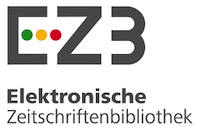Tendencias de la taxonomía de generaciones en el ámbito laboral: un análisis bibliométrico
##plugins.themes.bootstrap3.article.main##
Uno de los principales retos para las organizaciones hoy es lograr una óptima integración de los colaboradores al considerar las dificultades implícitas en la diversidad generacional de equipos con distintas motivaciones, estilos de trabajo, expectativas y conductas. Objetivo. Revisar la taxonomía de las generaciones en el ámbito laboral a través de un análisis bibliométrico en el tiempo y desde la perspectiva de distintos países. Metodología.
Se analizaron 293 documentos recopilados de las bases de datos Web of Science y Scopus en el período comprendido entre 1957 y 2020; para ello se utilizó el software R, Biblioshiny, con interfaz Bibliometrix. Resultados. Los principales hallazgos revelan un aumento significativo de estudios a través del tiempo, así como el hecho de que las generaciones y los períodos que las determinan tienen una definición heterogénea de acuerdo con el país en el que se estudian. Conclusiones. Para efectos de un mejor y más eficiente diseño de estrategias de capital humano, las organizaciones deben ser conscientes de las diferencias generacionales.
Downloads
##plugins.themes.bootstrap3.article.details##
Akhavan, A.R. et al. (2016). The impact of generational groups on organizational behavior in Iran. Human Systems Management, 35(3), 175-183.
https://doi.org/10.3233/HSM-160866 DOI: https://doi.org/10.3233/HSM-160866
Benson, J. et al. (2018). The generational "exchange" rate: How generations convert career development satisfaction into organisational commitment or neglect of work. Human Resource Management Journal, 28(4), 524-539. https://doi.org/10.1111/1748-8583.12198 DOI: https://doi.org/10.1111/1748-8583.12198
Berkes, F. (2009). Evolution of co-management: role of knowledge generation, bridging organizations and social learning. Journal of Environmental Management, 90(5), 1692-1702. https://doi.org/10.1016/j.jenvman.2008.12.001 DOI: https://doi.org/10.1016/j.jenvman.2008.12.001
Cennamo, L. and Gardner, D. (2008). Generational differences in work values, outcomes and person‐organisation values fit. Journal of Managerial Psychology, 23(8), 891-906. https://doi.org/10.1108/02683940810904385 DOI: https://doi.org/10.1108/02683940810904385
Goh, E. and Okumus, F. (2020). Avoiding the hospitality workforce bubble: Strategies to attract and retain generation Z talent in the hospitality workforce. Tourism Management Perspectives, 33, 100603. https://doi.org/10.1016/j.tmp.2019.100603 DOI: https://doi.org/10.1016/j.tmp.2019.100603
Gursoy, D., Maier, T.A. and Chi, C.G. (2008). Generational differences: An examination of work values and generational gaps in the hospitality workforce. International Journal of Hospitality Management, 27(3), 448-458. https://doi.org/10.1016/j.ijhm.2007.11.002 DOI: https://doi.org/10.1016/j.ijhm.2007.11.002
Hahn, T. et al. (2006). Trust-building, knowledge generation and organizational innovations: the role of a bridging organization for adaptive comanagement of a wetland landscape around Kristianstad, Sweden. Human Ecology, 34(4), 573-592. https://doi.org/10.1007/s10745-006-9035-z DOI: https://doi.org/10.1007/s10745-006-9035-z
Jung, H.S., Seo, K.H. and Yoon, H.H. (2020). The importance of leader integrity on family restaurant employees' engagement and organizational citizenship behaviors: Exploring sustainability of employees' generational differences. Sustainability, 12(6), 2504. https://doi.org/10.3390/su12062504 DOI: https://doi.org/10.3390/su12062504
Kong, H., Okumus, F. and Bu, N. (2020). Linking organizational career management with Generation Y employees' organizational identity: The mediating effect of meeting career expectations. Journal of Hospitality Marketing & Management, 29(2), 164-181. https://doi.org/10.1080/19368623.2019.1616644 DOI: https://doi.org/10.1080/19368623.2019.1616644
Kupperschmidt, B.R. (2000). Multigenerational employees: Strategies for effective management. The Health Care Manager, 19(1), 65-76.
https://doi.org/10.1097/00126450-200019010-00011 DOI: https://doi.org/10.1097/00126450-200019010-00011
Lyons, S.T. and Schweitzer, L. (2017). A qualitative exploration of generational identity: Making sense of young and old in the context of today's workplace. Work, Aging and Retirement, 3(2), 209-224.
Montaudon-Tomas, C.M. et al. (2020). High Performance Teams in a Multigenerational Workforce: An Example from Academia in Mexico. En Montaudon-Tomas, C.M. et al. (Eds.), Global Applications of Multigenerational Management and Leadership in the Transcultural Era (pp. 76-107). Pennsylvania, USA: IGI Global.
https://doi.org/10.4018/978-1-5225-9906-7.ch003 DOI: https://doi.org/10.4018/978-1-5225-9906-7.ch003
Niemistö, C., Hearn, J. and Jyrkinen, M. (2016). Age and generations in everyday organisational life: Neglected intersections in studying organizations. International Journal of Work Innovation, 1(4), 353-374.
Park, S. and Park, S. (2018). Exploring the generation gap in the workplace in South Korea. Human Resource Development International, 21(3), 276-283.
https://doi.org/10.1080/13678868.2017.1306769 DOI: https://doi.org/10.1080/13678868.2017.1306769
Paulus, P.B. and Yang, H.C. (2000). Idea generation in groups: A basis for creativity in organizations. Organizational Behavior and Human Decision Processes, 82(1), 76-87. https://doi.org/10.1006/obhd.2000.2888 DOI: https://doi.org/10.1006/obhd.2000.2888
Rani, N. and Samuel, A. (2016). A study on generational differences in work values and person-organization fit and its effect on turnover intention of Generation Y in India. Management Research Review, 39(12), 1695- 1719. https://doi.org/10.1108/MRR-10-2015-0249 DOI: https://doi.org/10.1108/MRR-10-2015-0249
Schwartz, S. et al. (2012). Refining the theory of basic individual values. Journal of Personality and Social Psychology, 103(4), 663-688. Stevanin, S. et al. (2020). Nurses' generational differences related to workplace and leadership in two European countries. Western Journal of Nursing Research, 42(1), 14-23. DOI: https://doi.org/10.1177/0193945919838604
https://doi.org/10.1037/a0029393 DOI: https://doi.org/10.1037/a0029393
Tang, N., Wang, Y. and Zhang, K. (2017). Values of Chinese generation cohorts: Do they matter in the workplace? Organizational Behavior and Human Decision Processes, 143, 8-22. https://doi.org/10.1016/j.obhdp.2017.07.007 DOI: https://doi.org/10.1016/j.obhdp.2017.07.007
Twenge, J.M. and Campbell, S.M. (2008). Generational differences in psychological traits and their impact on the workplace. Journal of Managerial Psychology, 23(8), 862-877. https://doi.org/10.1108/02683940810904367 DOI: https://doi.org/10.1108/02683940810904367
Van Rossem, A.H.D. (2019). Generations as social categories: An exploratory cognitive study of generational identity and generational stereotypes in a multigenerational workforce. Journal of Organizational Behavior, 40(4), 434-455. https://doi.org/10.1002/job.2341 DOI: https://doi.org/10.1002/job.2341
Walden, J., Jung, E.H. and Westerman, C.Y.K. (2017). Employee communication, job engagement, and organizational commitment: A study of members of the Millennial Generation. Journal of Public Relations Research, 29(2-3), 73-89. https://doi.org/10.1080/1062726X.2017.1329737 DOI: https://doi.org/10.1080/1062726X.2017.1329737



































